
Insulin is a peptide hormone produced by beta cells of the pancreatic islets encoded in humans by the insulin (INS) gene. It is the main anabolic hormone of the body. It regulates the metabolism of carbohydrates, fats, and protein by promoting the absorption of glucose from the blood into cells of the liver, fat, and skeletal muscles. In these tissues the absorbed glucose is converted into either glycogen, via glycogenesis, or fats (triglycerides), via lipogenesis; in the liver, glucose is converted into both. Glucose production and secretion by the liver are strongly inhibited by high concentrations of insulin in the blood. Circulating insulin also affects the synthesis of proteins in a wide variety of tissues. It is thus an anabolic hormone, promoting the conversion of small molecules in the blood into large molecules in the cells. Low insulin in the blood has the opposite effect, promoting widespread catabolism, especially of reserve body fat.

John James Rickard Macleod,, was a Scottish biochemist and physiologist. He devoted his career to diverse topics in physiology and biochemistry, but was chiefly interested in carbohydrate metabolism. He is noted for his role in the discovery and isolation of insulin during his tenure as a lecturer at the University of Toronto, for which he and Frederick Banting received the 1923 Nobel prize in Physiology or Medicine.
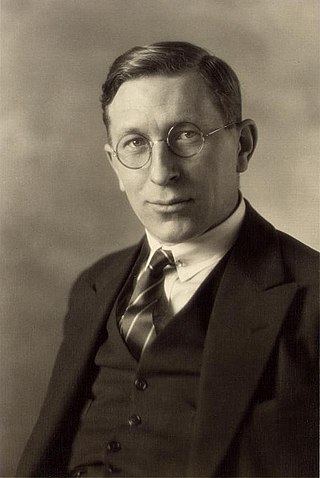
Sir Frederick Grant Banting was a Canadian pharmacologist, orthopedist, and field surgeon. For his co-discovery of insulin and its therapeutic potential, Banting was awarded the Nobel Prize in Physiology or Medicine with John Macleod.
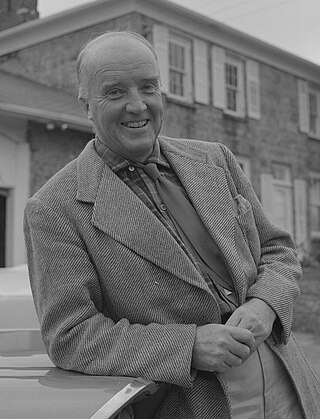
Charles Herbert Best, was an American-Canadian medical scientist and one of the co-discoverers of insulin with Frederick Banting. He served as the chair of the Banting and Best Department of Medical Research at the University of Toronto and was further involved in research concerning choline and heparin.
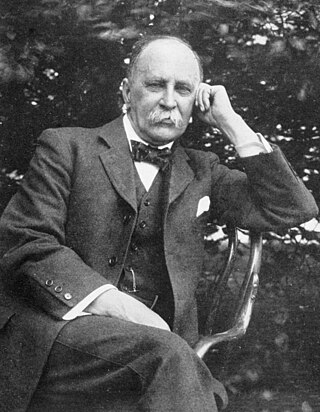
Sir William Osler, 1st Baronet, was a Canadian physician and one of the "Big Four" founding professors of Johns Hopkins Hospital. Osler created the first residency program for specialty training of physicians, and he was the first to bring medical students out of the lecture hall for bedside clinical training. He has frequently been described as the Father of Modern Medicine and one of the "greatest diagnosticians ever to wield a stethoscope". In addition to being a physician he was a bibliophile, historian, author, and renowned practical joker. He was passionate about medical libraries and medical history, having founded the History of Medicine Society, at the Royal Society of Medicine, London. He was also instrumental in founding the Medical Library Association of Great Britain and Ireland, and the Association of Medical Librarians along with three other people, including Margaret Charlton, the medical librarian of his alma mater, McGill University. He left his own large history of medicine library to McGill, where it became the Osler Library.

Harvey Williams Cushing was an American neurosurgeon, pathologist, writer, and draftsman. A pioneer of brain surgery, he was the first exclusive neurosurgeon and the first person to describe Cushing's disease. He wrote a biography of physician William Osler in three volumes.

The Temerty Faculty of Medicine is the medical school of the University of Toronto. Founded in 1843, the faculty is based in Downtown Toronto and is one of Canada's oldest institutions of medical studies, being known for the discovery of insulin, stem cells and the site of the first single and double lung transplants in the world.

James Bertram Collip was a Canadian biochemist who was part of the Toronto group which isolated insulin. He served as the chair of the department of biochemistry at McGill University from 1928 to 1941 and dean of medicine at the University of Western Ontario from 1947 to 1961, where he was a charter member of The Kappa Alpha Society.

The Royal Society of Medicine (RSM) is a medical society based at 1 Wimpole Street, London, UK. It is a registered charity, with admission through membership.

Hospitals in Canada were initially places which cared for the poor as those with higher socioeconomic status were cared for at home. In Quebec during the 18th century, a series of charitable institutions, many set up by Catholic religious orders, provided such care.
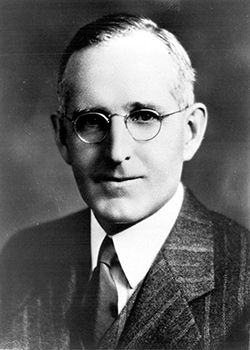
John Gerald "Gerry" FitzGerald was a Canadian physician and public health specialist who was instrumental in the control of diphtheria, first by producing and freely distributing antitoxin, and then in 1924 by using mass production to enable widespread use of the vaccine devised by Gaston Ramon.

Glory Enough for All is a 1988 Canadian television movie directed by Eric Till and written by Grahame Woods, depicting the discovery and isolation of insulin by Frederick Banting and Charles Best. It was the winner of nine 1989 Gemini Awards. The film stars R. H. Thomson as Banting, and Robert Wisden as Best. It is based on the books The Discovery of Insulin and Banting: A Biography by historian Michael Bliss.

The condition known today as diabetes is thought to have been described in the Ebers Papyrus. Ayurvedic physicians first noted the sweet taste of diabetic urine, and called the condition madhumeha. The term diabetes traces back to Demetrius of Apamea. For a long time, the condition was described and treated in traditional Chinese medicine asxiāo kě. Physicians of the medieval Islamic world, including Avicenna, have also written on diabetes. Early accounts often referred to diabetes as a disease of the kidneys. In 1674, Thomas Willis suggested that diabetes may be a disease of the blood. Johann Peter Frank is credited with distinguishing diabetes mellitus and diabetes insipidus in 1794.
The Banting Research Foundation is a registered charity whose object was to fund health and biomedical research in Canada. It was established to support the ongoing research of Frederick Banting and his associates.
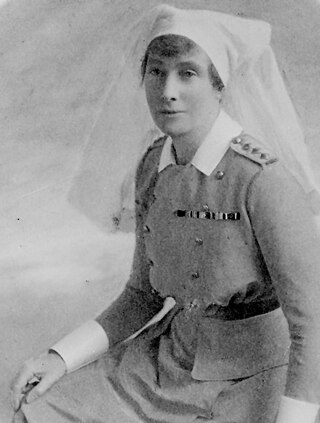
Edith Campbell, was a Canadian nurse. She served with the Canadian Army Medical Corps in the First World War and was one of the first Canadian nurses to arrive in England to assist in the establishment of the Duchess of Connaught Canadian Red Cross Hospital, a field hospital in Taplow, Buckinghamshire, and serve during the First World War. She later served on the Western Front, being awarded the Royal Red Cross, first class, and the Military Medal. She was also twice mentioned in despatches.

Aequanimitas was one of Sir William Osler's most famous essays, delivered to new doctors in 1889 as his farewell address at the Pennsylvania School of Medicine, prior to his transfer to Johns Hopkins. It was published in the same year and in 1904 appeared in his collection of essays titled Aequanimitas with Other Addresses to Medical Students, Nurses and Practitioners of Medicine. A second edition was produced in 1906, and a third in 1932. In the essay, Osler advocates two qualities "imperturbability" and "equanimity", which he defined as "coolness and presence of mind under all circumstances".

The Connaught Medical Research Laboratories was a non-commercial public health entity established by Dr. John G. FitzGerald in 1914 in Toronto to produce the diphtheria antitoxin. Contemporaneously, the institution was likened to the Pasteur Institutes in France and Belgium and the Lister Institute in London. It expanded significantly after the discovery of insulin at the University of Toronto in 1921, manufacturing and distributing insulin at cost in Canada and overseas. Its non-commercial mandate mediated commercial interests and kept the medication accessible. In the 1930s, methodological advances at Connaught updated the international standard for insulin production.
Walter Ruggles "Dynamite" Campbell was a Canadian physician and diabetologist, known as the first physician "to administer insulin to a patient."
Andrew Almon Fletcher was a Canadian physician and pioneering diabetologist, known as one of the five co-authors of the famous 1922 paper Pancreatic Extracts in the Treatment of Diabetes Mellitus.
















